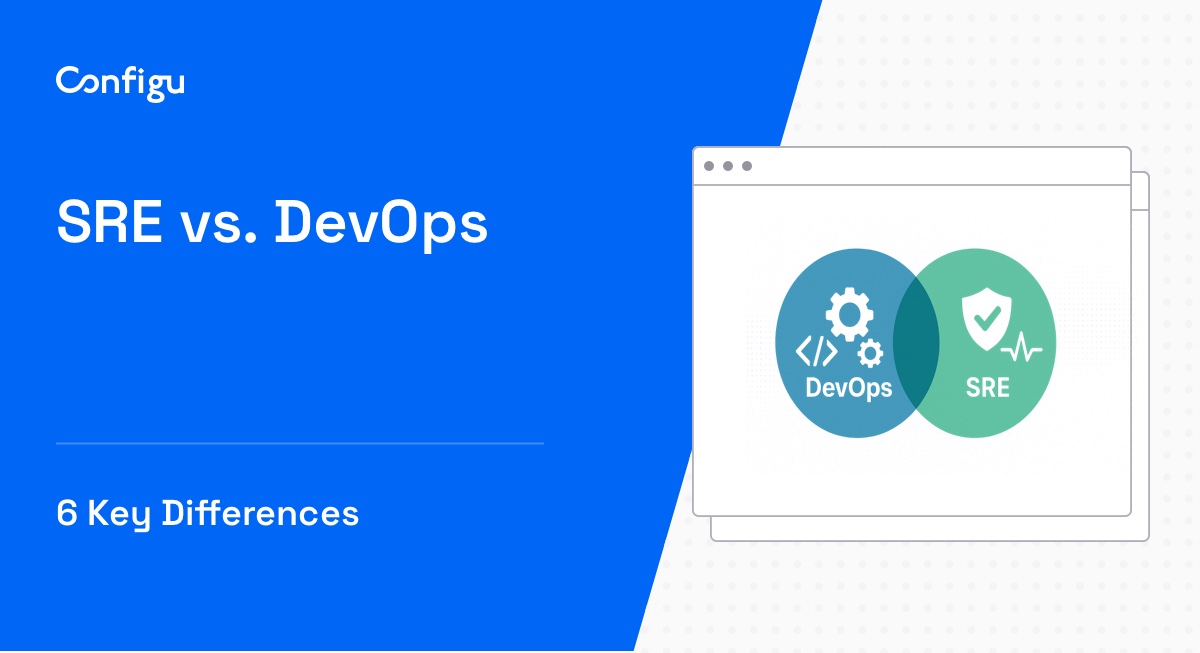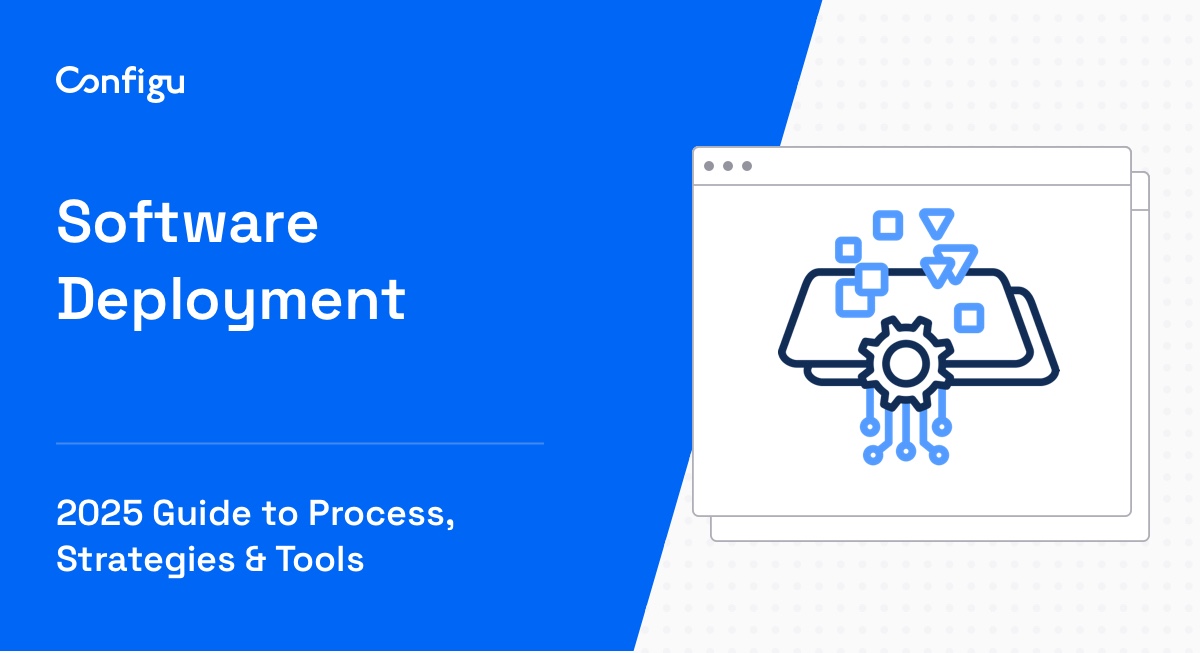What Is AWS Secrets Manager?
AWS Secrets Manager is a service to handle sensitive information, often referred to as secrets, used in applications and services across cloud infrastructure. It securely manages access to crucial information such as database credentials, API keys, and other confidential content required by applications, ensuring these details remain protected from unauthorized access.
This service offers developers and IT administrators a centralized way to manage secrets without embedding them directly into source code. It uses encryption to maintain the confidentiality of secrets, ensuring data is only accessible to permitted systems. By automating secret updates and provisioning, the service helps prevent exposure from stale credentials, simplifying compliance with security standards.
In this article:
Key Features of AWS Secrets Manager
The service includes the following features.
Secure Secret Storage and Encryption
Secrets Manager ensures secret storage by encrypting data at rest using AWS Key Management Service (KMS). Any secrets stored by the service are protected by strong encryption mechanisms, preventing potential leaks if the data is exposed. This encryption protocol also applies to data in transit.
The service is designed to be highly secure while being easily accessible to those with permission. Users can access secrets through the AWS Management Console, AWS CLI, or AWS SDKs. The use of IAM policies allows for control over who can access secrets.
Automatic Secret Rotation
Secrets Manager can automatically rotate secrets, reducing the risk of unauthorized access due to old credentials. This rotation helps ensure that secrets are regularly updated without manual intervention, aligning with security best practices and minimizing operational burdens. Users can define custom rotation schedules according to their security policies.
Automatic rotation can be implemented through AWS Lambda functions, providing a range of integration possibilities with various AWS services and applications. This feature helps maintain the freshness and security of secrets, ensuring that any compromised credentials are swiftly replaced with new ones.
Fine-Grained Access Control
AWS Secrets Manager supports fine-grained access control through the use of AWS Identity and Access Management (IAM) policies. These policies enable administrators to specify permissions, ensuring that only authorized users and applications can access certain secrets. By limiting access to essential personnel and services, the risk of exposure is minimized.
The flexibility of IAM allows for detailed permission settings, including conditions under which permissions are granted. This enables security configurations that align with organizational policies, offering an additional layer of protection.
Cross-Region Secret Replication
Cross-region secret replication allows users to maintain a consistent security posture across multiple geographic areas. This feature is vital for organizations that operate in multiple AWS regions, as it enables them to manage secrets from a central location without duplicating efforts in each region.
Cross-region replication helps minimize complexity in maintaining secrets across a distributed cloud environment. It is especially useful for disaster recovery and business continuity planning, as it ensures critical secrets remain accessible if a region goes offline.
Learn how to better manage secrets and other configurations with a configuration-as-code approach.
AWS Secrets Manager Pricing
AWS Secrets Manager pricing is based on two primary components: the number of secrets stored and the number of API calls made. This pricing model ensures organizations only pay for what they use, with no upfront costs or long-term commitments.
AWS Secrets Manager offers a 30-day free trial, allowing users to store, manage, and retrieve secrets at no charge during this period. The trial begins when the first secret is stored, enabling users to explore the service and its features before incurring any costs.
After the free trial, customers are billed at $0.40 per secret per month. Each secret, including replica secrets, is treated as a distinct item for billing purposes. If a secret is stored for less than a month, the cost is prorated based on the number of hours it is active.
In addition to secret storage, AWS Secrets Manager charges $0.05 per 10,000 API calls. This pricing applies to requests made to store, retrieve, or manage secrets via the AWS Management Console, CLI, or SDKs.
AWS Secrets Manager Limitations
AWS Secrets Manager also has some limitations that may impact its usability for certain organizations and scenarios. These limitations were reported by users on the G2 platform:
- Integration challenges: Some third-party security tools may not integrate seamlessly with AWS Secrets Manager, requiring additional configuration or custom solutions to ensure compatibility.
- Complexity for new users: The extensive range of AWS security services can be overwhelming for those unfamiliar with the platform. Understanding how Secrets Manager interacts with other AWS tools can involve a steep learning curve.
- Pricing complexity: The cost structure for AWS Secrets Manager, especially for organizations managing a large number of secrets or making frequent API calls, can be challenging to estimate and budget accurately.
- Limited monitoring visibility: Default dashboards for monitoring and analyzing security events may lack the depth or customization needed for advanced use cases. Organizations with complex security requirements might need additional tools or expertise to build comprehensive reports.
AWS Secrets Manager Alternatives
1. Configu
Configu is a configuration management platform comprised of two main components:
Configu Orchestrator
As applications become more dynamic and distributed in microservices architectures, configurations are getting more fragmented. They are saved as raw text that is spread across multiple stores, databases, files, git repositories, and third-party tools (a typical company will have five to ten different stores).
The Configu Orchestrator, which is open-source software, is a powerful standalone tool designed to address this challenge by providing configuration orchestration along with Configuration-as-Code (CaC) approach.
Configu Cloud
Configu Cloud is the most innovative store purpose-built for configurations, including environment variables, secrets, and feature flags. It is built based on the Configu configuration-as-code (CaC) approach and can model configurations and wrap them with unique layers, providing collaboration capabilities, visibility into configuration workflows, and security and compliance standardization.
Unlike legacy tools, which treat configurations as unstructured data or key-value pairs, Configu is leading the way with a Configuration-as-Code approach. By modeling configurations, they are treated as first-class citizens in the developers’ code. This makes our solution more robust and reliable and also enables Configu to provide more capabilities, such as visualization, a testing framework, and security abilities.
2. Azure Key Vault
Azure Key Vault is a cloud-based service provided by Microsoft Azure that securely manages sensitive information such as passwords, certificates, API keys, and encryption keys. It enables organizations to centralize the storage and control of access to data. The service supports automated lifecycle management for secrets.
Key features include:
- Secrets management: Allows secure storage and controlled access to sensitive information like API keys, tokens, passwords, and certificates. This eliminates the need to embed secrets in application code, reducing the risk of accidental exposure.
- Key management: Enables the creation and management of encryption keys used for data protection. Azure Key Vault supports both software-protected keys (Standard tier) and hardware-protected keys using hardware security modules (Premium tier).
- Certificate management: Simplifies the provisioning, renewal, and deployment of TLS/SSL certificates for securing Azure services and internal applications.
- Access control: Uses Azure role-based access control (RBAC) and Key Vault access policies to enforce strict permissions. Authentication is managed via Microsoft Entra ID, ensuring secure access to secrets and keys.
- Centralized secret management: Reduces the complexity of secret distribution and the need for custom security mechanisms.
Source: Microsoft
3. HashiCorp Vault
HashiCorp Vault is an identity-based security solution to manage and protect sensitive data such as secrets, keys, and certificates. It enables organizations to secure access to critical resources by authenticating and authorizing every request based on trusted identities.
Key features include:
- Secrets management: Allows users to centrally store, access, and distribute sensitive information such as API keys, tokens, and passwords programmatically.
- Certificate management: Automates the generation, rotation, and revocation of TLS/SSL certificates on demand. This feature helps maintain up-to-date encryption credentials without manual intervention.
- Encryption as a service: Offers encryption capabilities for data in transit and at rest. Applications can use Vault’s APIs to secure data without needing to manage their own encryption processes.
- Dynamic and short-lived credentials: Provides just-in-time credentials that automatically expire, minimizing the risk of credential misuse and simplifying management for cloud environments.
- Identity-based access control: Enforces strict access policies based on identity, ensuring only authorized users, machines, and services can retrieve secrets or perform sensitive actions.
Source: HashiCorp
4. Google Cloud Secret Manager
Google Cloud Secret Manager is a secure and centralized service for managing sensitive information, such as API keys, passwords, certificates, and other credentials. It allows organizations to store, access, and manage secret data with strong encryption and fine-grained access controls.
Key features include:
- Versioning for rollback and auditing: Supports secret versioning, enabling gradual rollouts and emergency rollbacks. If a secret is changed or compromised, users can revert to a known-good version, minimizing downtime and security risks.
- End-to-end encryption: Secrets are encrypted in transit and at rest using AES-256 encryption by default. For advanced use cases, users can employ Customer-Managed Encryption Keys (CMEK) for greater control over encryption.
- Fine-grained access control: With IAM, users can configure precise permissions for accessing and managing secrets. This allows organizations to separate responsibilities for access, management, auditing, and rotation of secrets.
- High availability with secret replication: Supports automatic and user-managed replication policies for high availability and disaster recovery. Users can replicate secrets across multiple regions to ensure access regardless of geographic location.
- Automated secret rotation: Reduces the risk of stale or compromised credentials.
Source: Google Cloud
5. CyberArk Privileged Access Manager
CyberArk Privileged Access Manager (PAM) is a solution to protect and manage privileged accounts, credentials, and access across hybrid and multi-cloud environments. It provides tools to secure high-risk access, detect and respond to threats in real time, helping simplify compliance efforts.
Key features include:
- Privileged access & credential management: Automatically discovers and manages privileged accounts, IAM roles, and secrets across on-premises and multi-cloud environments. Credentials are securely stored in a digital vault, with automated policy-based rotation.
- Zero standing privileges: Enforces a zero standing privilege model, providing access only when needed. This approach replaces persistent privileged access with just-in-time access.
- Session isolation and monitoring: Isolates privileged sessions to prevent direct access to critical systems. Continuous monitoring and recording of sessions provide visibility.
- Threat detection and response: Detects potential threats using analytics and automated responses, helping organizations proactively mitigate risks.
- Support for loosely connected devices: Secures access for devices not directly integrated into the network, including OT/ICS systems.
Source: CyberArk
Conclusion
Choosing the right secret management solution depends on organizational needs, security requirements, and the complexity of the environment. Effective tools should prioritize secure storage, access control, and automation to reduce human error and enhance compliance. By centralizing and protecting sensitive information, these solutions help organizations streamline operations, mitigate risks, and maintain a strong security posture in increasingly dynamic and distributed environments.


